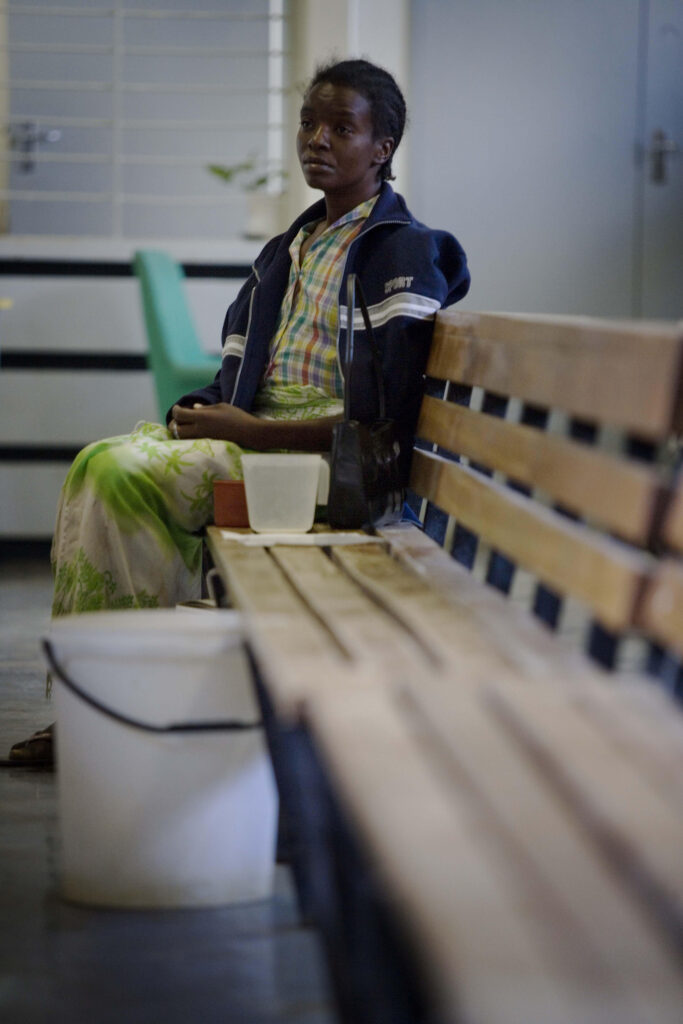In a new study published in JAMA, researchers evaluated a lay health worker administered, psychological intervention for individuals with common mental disorders in Zimbabwe. The authors, led by Dr. Dixon Chibanda at the University of Zimbabwe, utilized a problem-solving therapy intervention called the Friendship Bench, to treat symptoms of depression and anxiety. The intervention, delivered by lay health workers (LHWs) and not mental health professionals, proved to be effective in reducing symptomatology for participants.
“Among individuals screening positive for common mental disorders in Zimbabwe, LHW administration of a primary care–based problem-solving therapy with education and support compared with standard care plus education and support resulted in improved symptomatic outcomes.”

Allowing and training LHWs to treat common mental disorders is a solution to many issues related to mental health in Zimbabwe. As the authors of this study point out, in sub-Saharan Africa depression and anxiety are common mental disorders, and are a high burden for those who live with them. Treatment is only accessible to few, with ten psychiatrists for a population of 13 million. Although medical workers in primary care facilities often encounter individuals with untreated mental health issues, these places are often not equipped with staff trained to treat them. Training LHWs to conduct this type of work is an alternative being practiced in other parts of the world, as well.
For this study, the researchers sought to evaluate the effectiveness of the culturally adapted intervention known as the Friendship Bench, in which LHWs administered problem-solving therapy to individuals with mental disorders. In the Friendship Bench intervention, the individual being treated identifies an issue in their life that they want to work or is affecting them (for example, unemployment), rather than identifying symptoms or receiving a diagnosis.
“The first session includes three components called Opening the Mind (kuvhura pfungwa), Uplifting (kusimudzira), and Strengthening (kusimbisa), with subsequent sessions building on the first. Opening the Mind refers to the therapeutic process by which, through asking questions, clients were encouraged to open their minds to identify their problems, choose one to work on, identify a feasible solution, and agree on an action plan through an iterative process guided by the LHWs.”
The study took place in 24 clinics in Harare, Zimbabwe; clinics which are primarily staffed with nurses, nurse aides, and LHWs – with physicians visiting every two weeks. After being screened, twenty-four participants in each clinic were randomly assigned. Participants needed to have a Shona Symptom Questionnaire (SSQ-14) score of 9 or higher – a locally validated screening tool, which indicates the existence of a common mental disorder. Participants receiving psychiatric care, or who had suicidal intent, psychosis, intoxication, or dementia were excluded from participating in the study.
In the intervention group, LHWs followed a manualized treatment script for six sessions, often conducted on a bench close to the clinic. Sessions included educational topics, counseling skills, and self-care. LHWs were supervised by senior health promotion officers trained in mental health and provided up to six text messages, phone calls, or both during the intervention period. After four sessions, participants were also invited to join a peer-led group. In the control group, participants received “enhanced usual care”, which consisted of a nurse-led evaluation, brief counseling, option for medication, and referrals if needed. In addition, they received two to three messages or calls.
Study results suggested that participants in the intervention group showed a greater improvement in symptoms of depression (50% in the control group still had symptoms vs. 14% in the intervention group), anxiety (48% in the control group still had symptoms vs. 12% in the intervention group), and general disability than those in the enhanced usual care group. Participants with more severe symptoms at baseline saw better outcomes in their six-month follow-up. Despite limitations related to knowledge of sustainability of the model after six months, and some reliability of collected information, the study was able to show that a locally validated model, with a focus on therapeutic alliances, could have a significant positive outcome in the reduction of mental health symptoms for individuals.
****
Chibanda, D., Weiss, H. A., Verhey, R., Simms, V., Munjoma, R., Rusakaniko, S., … & Abas, M. (2016). Effect of a primary care–based psychological intervention on symptoms of common mental disorders in Zimbabwe: A randomized clinical trial. JAMA, 316(24), 2618-2626. (Abstract)















Interesting to note that HALF of the participants in the control group got better with NO intervention. Also interesting to note that the improvements here appear far superior to antidepressant drugs, which barely beat a placebo. Once again, talking to a caring human being beats the crap out of screwing with brain chemistry.
Report comment